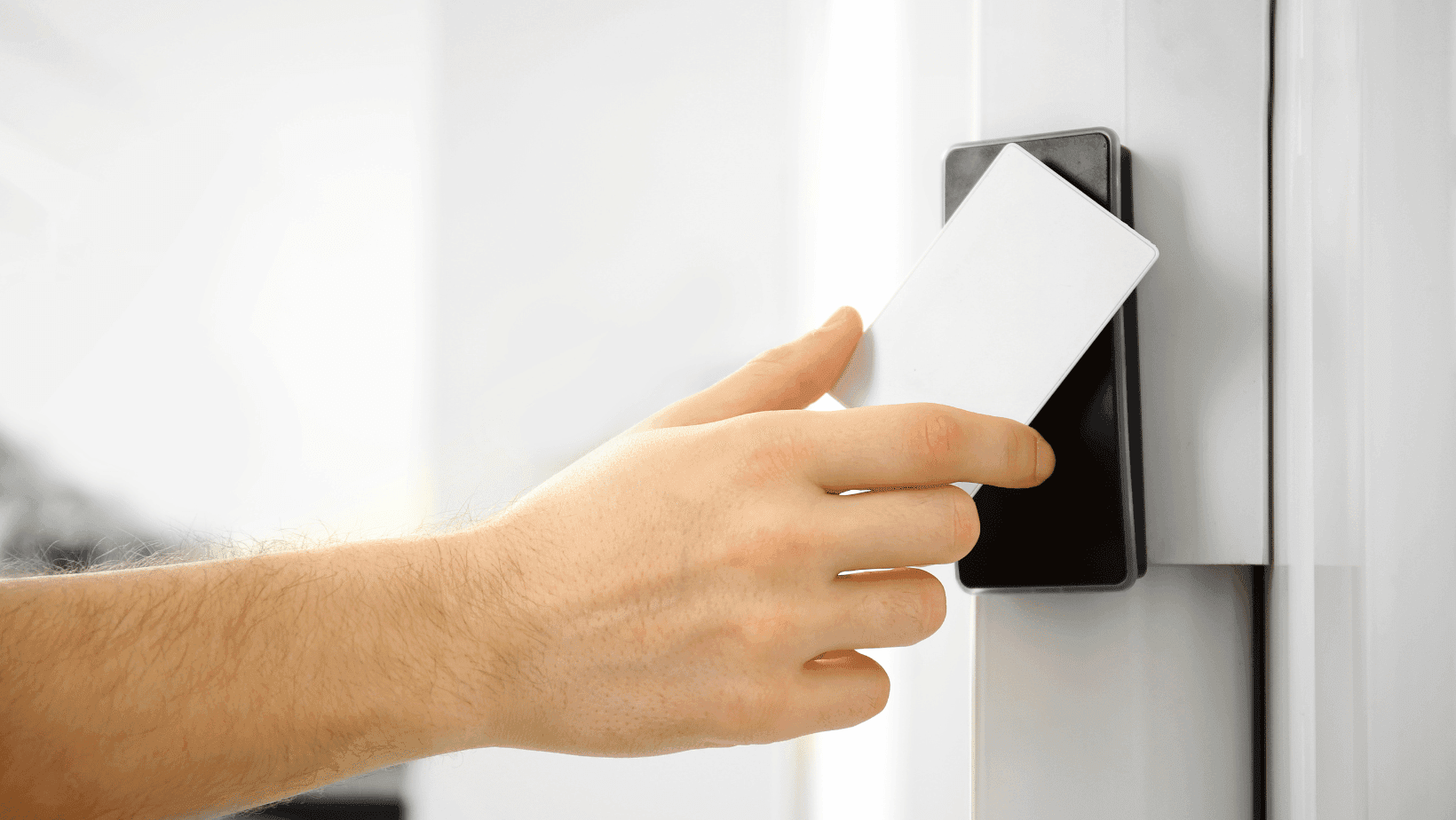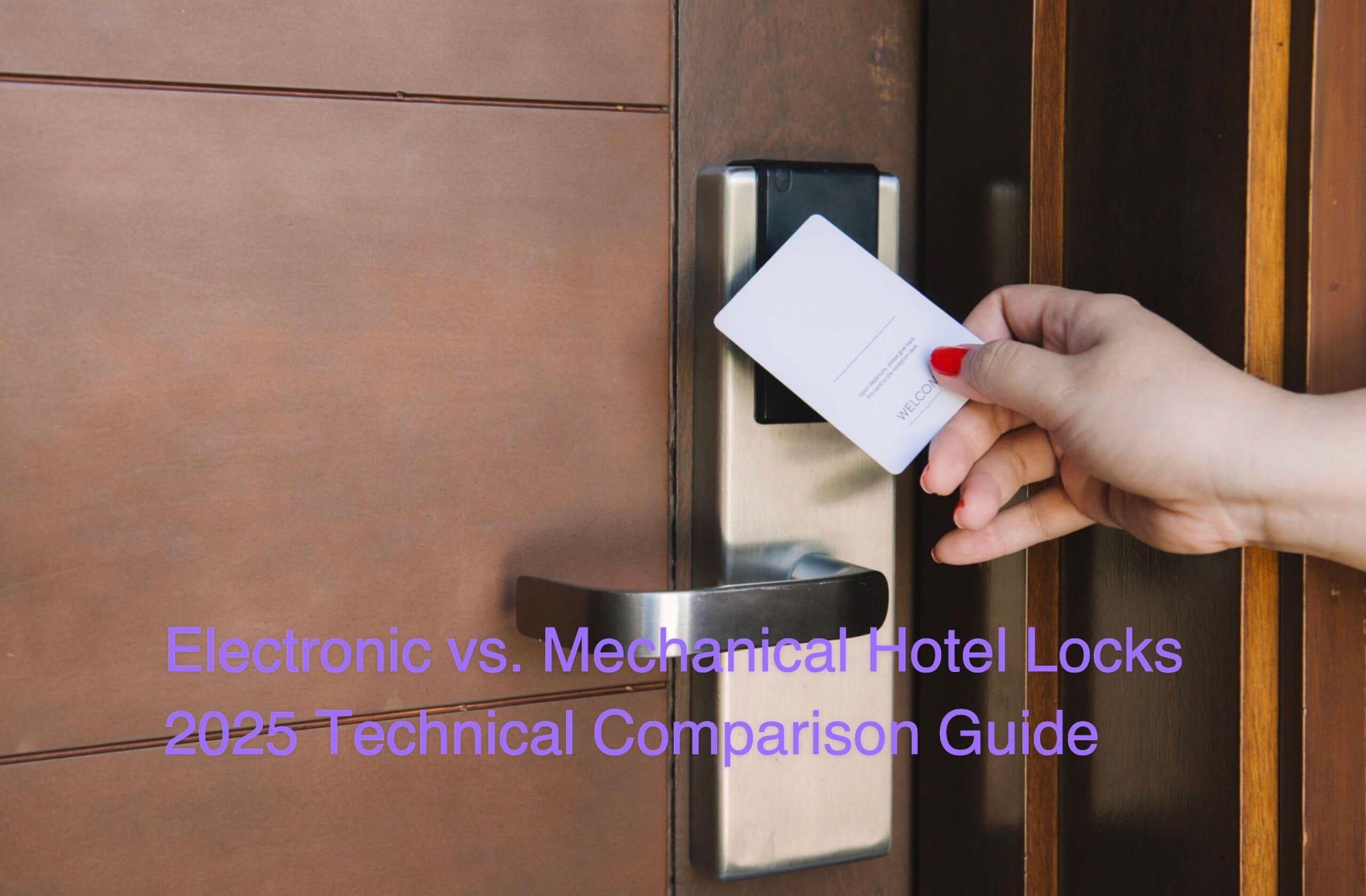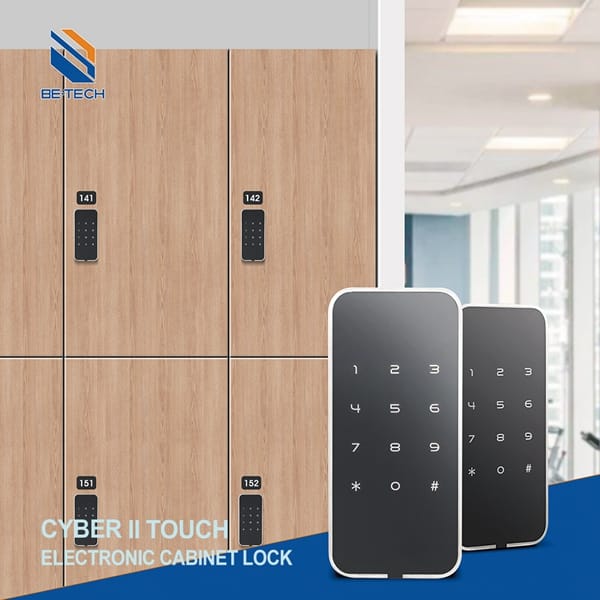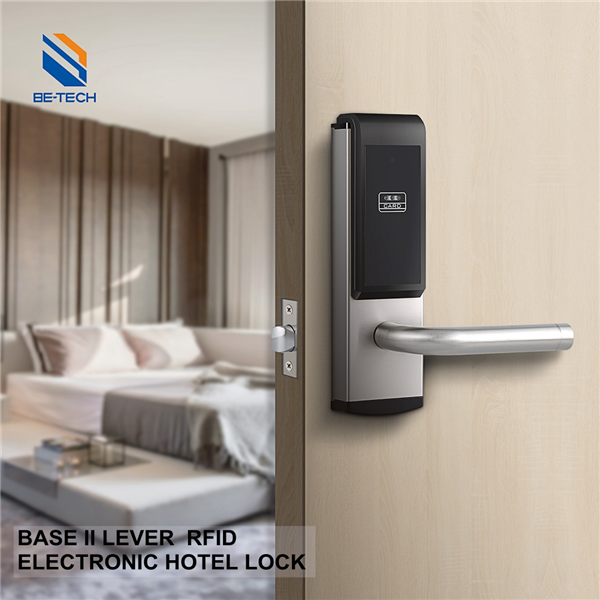In the competitive landscape of the hospitality industry, hotel managers are continually seeking innovative solutions to enhance security, improve guest experiences, and streamline operations. Smart hotel locks have emerged as a pivotal technology, offering advanced features that traditional locking systems lack. As we delve into the question of whether smart hotel locks are worth the investment in 2024, we will explore their benefits, considerations for implementation, and how specific products can meet the needs of hotel operators and security professionals.
The Evolution of Hotel Access Control
Historically, hotels relied on mechanical locks and physical keys, which presented numerous challenges, including:
Key Loss: Guests frequently lost keys, leading to security vulnerabilities.
Unauthorized Duplication: Physical keys could be easily copied, compromising safety.
Frequent Lock Changes: Hotels often needed to change locks due to lost keys, incurring additional costs.
The introduction of magnetic stripe keycards in the 1970s marked a significant improvement, offering enhanced security and convenience. However, these systems had limitations, such as demagnetization issues and ongoing costs associated with replacing lost or damaged cards.
Smart locks represent the next generation of hotel access control technology, leveraging digital keys, mobile apps, and cloud-based management platforms to provide a seamless, secure, and highly efficient solution for both guests and hotel staff.
For more insights into the evolution of hotel security, check out the Ultimate Guide to Advanced Hotel Door Lock Systems 2024.
Understanding Smart Lock Technology
Smart locks utilize a combination of hardware and software components to create a robust access control system. The core elements typically include:
Electronic Lock Mechanism: Provides secure locking and unlocking capabilities.
RFID or NFC Reader: Enables contactless access using cards or mobile devices.
Bluetooth Low Energy (BLE) Module: Allows for smartphone connectivity.
Mobile App for Guests: Facilitates easy access and room management.
Cloud-Based Management Platform for Hotel Staff: Enables real-time monitoring and access control.
This integrated system allows guests to access their rooms using their smartphones, wearable devices, or digital key cards. Hotel staff can manage access permissions, monitor lock status, and generate reports remotely through the cloud-based platform.
The Benefits of Smart Locks for Hotels
Enhanced Guest Experience
One of the primary advantages of smart locks is the significant improvement in guest experience. With smart locks, guests can:
Bypass the Check-In Desk: Go directly to their rooms without waiting in line.
Use Smartphones as Room Keys: Eliminate the need for physical key cards.
Easily Share Access: Grant access to travel companions without visiting the front desk.
Enjoy a Seamless Stay: Experience modern conveniences that enhance satisfaction.
A study by Hotel Management found that 73% of travelers prefer hotels that offer mobile key technology, highlighting the demand for such features. To learn more about the benefits of mobile keys, visit Mobile Keys: The Seamless Future of Hotel Check-In.
Improved Operational Efficiency
Smart locks can streamline hotel operations in several ways:
Reduced Staff Workload: Minimize the time spent managing physical keys and check-ins.
Elimination of Costs: Avoid expenses associated with lost or damaged key cards.
Simplified Room Reassignments: Easily manage room changes and extensions.
Automated Check-Out Processes: Enable guests to check out without front desk interaction.
Real-Time Monitoring: Track room access and occupancy efficiently.
According to a report by Hospitality Technology, hotels that implement smart lock systems can reduce front desk labor costs by up to 30%. For more on operational efficiency, check out Best Practices for Hotel Access Control: Secure Guest Rooms.
Enhanced Security Measures
Security is paramount in the hospitality industry, and smart locks offer advanced features to protect guests and hotel assets:
Encrypted Access Codes: Change with each use to prevent unauthorized entry.
Real-Time Alerts: Notify staff of unauthorized access attempts.
Detailed Access Logs: Improve accountability and security tracking.
Remote Lock-Down Capabilities: Enable immediate lockdown in emergencies.
Integration with Security Systems: Provide comprehensive protection.
A study by Security Magazine revealed that hotels with smart lock systems reported a 60% reduction in security-related incidents. For more on hotel security technologies, see 10 Must-Have Hotel Security Technologies for 2024.
Sustainability and Cost Savings
Smart locks contribute to a hotel’s sustainability efforts by reducing the need for plastic key cards. This not only decreases the hotel’s environmental footprint but also leads to long-term cost savings. Additionally, smart locks can be integrated with energy management systems to optimize room temperature and lighting based on occupancy, further reducing energy consumption.
Key Considerations Before Investing in Smart Locks
While the benefits of smart locks are compelling, hotels should consider several factors before making the investment:
- Security Features
When evaluating smart locks, prioritize systems with strong security features, including:
Encryption: Protects data during transmission.
Tamper Alerts: Notifies staff of any unauthorized attempts to access the lock.
Access Control: Allows for easy revocation of access in case of lost credentials.
User Experience
Choose locks that provide a seamless user experience for both guests and staff. Look for features such as:
Intuitive Interfaces: Ensure that guests can easily understand how to use the lock.
Mobile Compatibility: Confirm that the lock works with various smartphone models and operating systems.
Integration with Existing Systems
Select locks that can integrate with your hotel’s property management system (PMS) for efficient operations. This integration allows for:
Real-Time Updates: Ensure that room status and access rights are current.
Centralized Management: Streamline operations through a single platform.
Cost Considerations
While smart locks may require a higher initial investment, consider the long-term savings associated with:
Reduced Labor Costs: Minimized front desk staffing needs.
Lower Replacement Costs: Fewer expenses related to lost or damaged keys.
Technical Support and Maintenance
Ensure that the lock manufacturer provides robust technical support and maintenance options. This is crucial for addressing any issues that may arise post-installation.
Comparing Smart Lock Products
To assist hotel managers in making informed decisions, the following table compares key features of popular smart lock products available on the market.
| Product | Access Method | Integration | Security Features | Battery Life |
|---|---|---|---|---|
| Electronic Hotel Card Lock – Base II ‘Retro’ RFID | Mobile App, RFID | PMS Integration | AES Encryption, Tamper Alerts | Up to 12 months |
| Electronic Hotel Lock – Base RFID Typical | Bluetooth, Keypad | API for third-party apps | Biometric Access, Logs | Up to 18 months |
| Electronic Hotel Lock – Visual III RFID (V5 SERIES) | NFC, Mobile App | Cloud Management | Remote Lockdown, Alerts | Up to 24 months |
Be-Tech Lock: A Leader in Smart Hotel Solutions
Be-Tech Lock is at the forefront of the smart lock revolution, providing cutting-edge solutions that meet the unique needs of the hospitality industry. Their products are designed to enhance security, improve guest experiences, and streamline hotel operations.
Key Features of Be-Tech Lock Products
Advanced Security Protocols: Be-Tech locks utilize AES encryption and biometric access to ensure that only authorized individuals can enter guest rooms.
User-Friendly Interfaces: The mobile app is designed for ease of use, allowing guests to unlock their doors with a simple tap on their smartphones.
Robust Integration Options: Be-Tech locks can easily integrate with existing property management systems, enabling real-time updates and centralized management.
Durability and Reliability: Built to withstand the rigors of daily use, Be-Tech locks offer long battery life and robust construction.
For more information on Be-Tech products, visit Be-Tech: Pioneering Biometric Door Locks and Electronic Security Solutions.
Case Studies: Successful Implementations
Several hotels have successfully implemented Be-Tech Lock systems, reaping the benefits of enhanced security and improved guest experiences:
Hilton Hotel Chain: Integrated Be-Tech’s mobile key technology across its properties, resulting in faster check-ins and improved guest satisfaction ratings.
Marriott International: Adopted Be-Tech’s smart locks in select locations, allowing guests to bypass the front desk entirely, enhancing convenience and reducing wait times.
Hyatt Hotels: Implemented Be-Tech’s biometric locks in high-traffic areas, providing an added layer of security and convenience for guests.
For further insights into hotel security, see Unlock Hotel Security: 5 Reasons to Upgrade to Digital Locks.
The Future of Hotel Security
As we look toward 2024 and beyond, the investment in smart hotel locks is not merely a trend but a necessity for hotels aiming to enhance security and improve guest convenience. The benefits of smart locks, including enhanced security, improved operational efficiency, and elevated guest experiences, make them a worthwhile investment for hotel operators.
Emerging Trends in Smart Lock Technology
The hospitality industry is witnessing several trends that will shape the future of smart lock technology:
Increased Adoption of Mobile Keys: As guests increasingly prefer the convenience of mobile check-ins and digital keys, hotels must adapt to meet these expectations.
Integration with IoT Devices: Smart locks will increasingly integrate with other IoT devices, allowing for a more comprehensive smart hotel experience.
Focus on Data Security: With rising concerns about data breaches, hotels will need to prioritize robust cybersecurity measures in their smart lock systems.
Sustainability Initiatives: As guests become more environmentally conscious, hotels will seek smart lock solutions that align with their sustainability goals.
For more on the future of hotel locks, check out The Future of Hotel Locks: Biometrics, Mobile Keys & More.
Conclusion: Are Smart Hotel Locks Worth the Investment?
In conclusion, investing in smart hotel locks is a strategic decision that can significantly enhance the guest experience, improve operational efficiency, and bolster security measures. As the hospitality industry continues to evolve, embracing smart lock technology will be essential for maintaining a competitive edge.
Be-Tech Lock stands out as a trusted leader in the industry, offering innovative solutions that address the critical challenges faced by hotel managers. By choosing smart locks, hotels can not only meet the demands of modern travelers but also position themselves for long-term success in an increasingly digital world.
To discover how Be-Tech Lock can transform your hotel’s security and guest experience, visit our website for more information and explore our range of products tailored for the hospitality industry.
For additional reading on hotel security, see Best Hotel Door Lock Systems 2024: Ultimate Safety & Convenience.









